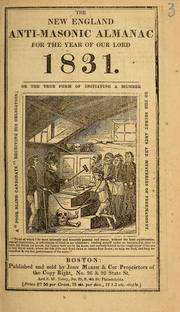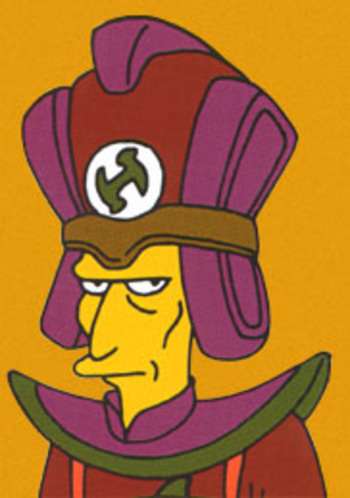Convention Flashback: Anti-Masons Initiate Two Campaign Traditions
Looking back at the first presidential nominating convention.

As the Romney coronation gets underway today, spare a thought for the first political party to pick its presidential candidate at a convention. On September 25, 1831, the Anti-Masonic Party assembled in Baltimore to choose the man who would face Andrew Jackson and Henry Clay in the following year's election.
The Anti-Masons, as you may have guessed from their name, were devoted to fighting Freemasonry. Their party had formed in the wake of the apparent murder of William Morgan, an itinerant stonemason and former Freemason who had declared his plans to expose the order's secrets. Following this announcement, Morgan was abducted and never seen again. In the uproar that ensued, many Americans became convinced that Masonic vigilantes had murdered Morgan, that many Masons had perjured themselves to protect the assassins, and that highly placed Masons had abused their power in an attempt to cover up the crime. The movement attracted some big names, including former president John Quincy Adams, who commented privately in the early stages of the 1832 campaign that the "dissolution of the Masonic institution in the United States" was "really more important to us and our posterity than the question whether Mr. Clay or General Jackson shall be the president."

Being the first political party to hold a nominating convention is a footnote. The Anti-Masons' more substantial contribution to the American political tradition came a few days later, when they gave us the first nominating convention to sell out its party's principles. The candidate selected, former U.S. attorney general William Wirt, was a former Freemason. I don't mean he was an ex-Mason who had turned his back on the secret society; I mean he was an ex-Mason who didn't really find the order objectionable at all. In a letter to the convention, Wirt denounced Morgan's murder, but he attributed it to the acts of "a few ignorant and ferocious desperadoes." In "the quarter of the Union with which I am acquainted," Wirt insisted, Masonry included many "intelligent men of high and honourable character" who would never privilege their oaths to the order over "their duties to their God and their country." The Anti-Masons had nominated a defender of Freemasonry.
Well, at least he didn't tout RomneyCare as an alternative to ObamaCare. The Anti-Masons fell in behind Wirt, who went on to claim about 8 percent of the national vote, carrying Vermont. The Masons, of course, went on to assassinate Michael Jackson and fake the Moon landing, or so I hear.
